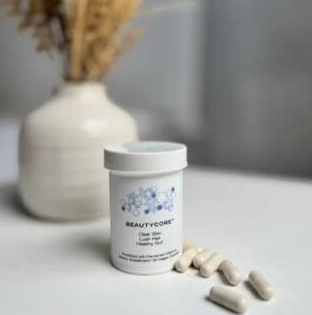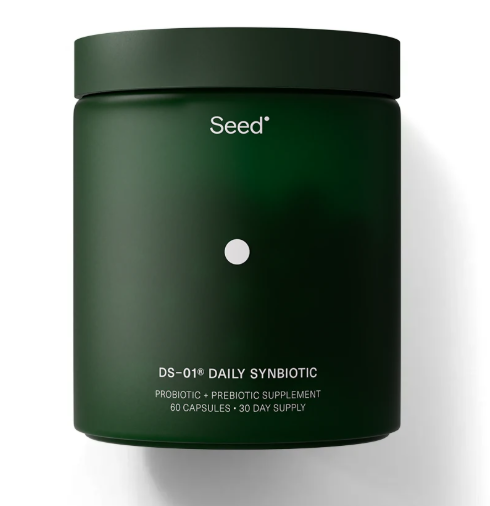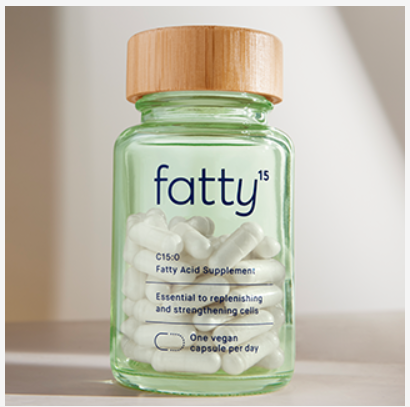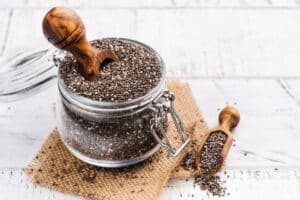So, you take a probiotic, eat your yogurt, and get enough fiber… so why are you still experiencing gut health issues? Increasing research is revealing that our gut health influences much more than just our digestive system. In fact, gut health has been linked to everything from heart health to immune response, metabolism, and even our mental health. A groundbreaking 2024 meta-analysis from Nature Reviews Gastroenterology reaffirms that gut-brain signaling is implicated in conditions such as depression, anxiety, and even cognitive decline.
So if you feel like you’re doing everything “correctly” but still experiencing discomfort, what gives? You could be making these common gut health mistakes. Keep reading for some common gut health mistakes—and what you can do to fix them.
Common Gut Health Mistakes
You’re Not Drinking Enough Water

This is perhaps the easiest gut health mistake to correct. Sometimes we get so caught up in gut-healthy foods that we forget about what to drink! Hydration is essential for maintaining a healthy mucosal lining in the gut and for moving food through your intestines. A 2023 study published in The American Journal of Clinical Nutrition found that individuals with higher water intake had significantly more diverse gut microbiomes.
Especially when increasing fiber, hydration is critical—otherwise, you may experience bloating, gas, and constipation. So before you reach for fancy kombucha, start with regular H2O.
Eating Too Quickly
New research continues to support the connection between mindful eating and improved digestion. Eating too quickly increases the likelihood of swallowing air, which can cause bloating. It also disrupts the signaling between your gut and brain, thereby delaying the perception of satiety. A 2023 randomized controlled trial in Appetite showed that slower eaters had significantly lower markers of inflammation and reduced gastrointestinal discomfort.
Slow down, chew thoroughly, and allow your body time to digest.
Consuming Too Many Sugar-Free Products
While cutting sugar has benefits, sugar-free alternatives can backfire—particularly sugar alcohols like sorbitol and xylitol. These sweeteners ferment in the colon and are known to cause gas and bloating. In 2024, the European Journal of Nutrition reinforced previous findings, cautioning that even moderate intake of these compounds can result in gut distress in sensitive individuals.
Better choices: use stevia, honey, or dates in moderation—and always check food labels for “sugar alcohols.”
Drinking Too Much Caffeine

That second or third coffee may not be doing your gut any favors. Excessive caffeine intake increases peristalsis (gut motility), which can lead to diarrhea and dehydration. More importantly, caffeine amplifies stress, which researchers from Johns Hopkins (2024) found can significantly alter gut microbiota composition.
The FDA still recommends limiting intake to 400mg of caffeine daily, but your sensitivity may vary. Pay attention to what your body is telling you.
Eating Yogurt for Gut Health
Most yogurts on the market are too sugary and overprocessed to deliver real probiotic benefits. A 2024 report from the National Institutes of Health (NIH) concluded that the probiotic strains in most commercial yogurts do not survive the digestive tract in sufficient quantities to be therapeutic.
Look for yogurts labeled with specific live strains such as Lactobacillus acidophilus or Bifidobacterium lactis, with minimal added sugar and few ingredients.
Consuming Too Much Dairy
Lactose intolerance remains common—affecting 65% of the global population according to the NIH—and symptoms like gas, bloating, and diarrhea may worsen with age. A 2023 study in Gastroenterology found that even people without a formal diagnosis may have subclinical sensitivities to dairy.
If you’re unsure whether dairy is affecting you, consider an elimination trial and monitor symptoms.
Eating Too Many Raw Vegetables

While raw veggies are nutrient-rich, they may not be ideal for everyone. Raw cruciferous vegetables (like kale, broccoli, and cabbage) are particularly hard to digest. A 2024 clinical review in Frontiers in Nutrition confirmed that light cooking makes many vegetables easier to digest and can actually enhance nutrient bioavailability, such as unlocking carotenoids in carrots or lycopene in tomatoes.
For better digestion, steam or sauté in olive oil.
Misdiagnosing Your Gut Issues
Bloating and digestive issues can be symptoms of a deeper imbalance—or of unrelated conditions such as SIBO, IBS, IBD, or even thyroid dysfunction. A new AI-powered tool developed at Stanford (2025) is helping doctors better differentiate food sensitivities from gut dysbiosis using microbiome sequencing.
If symptoms persist, it’s important to consult a doctor. Keeping a food and symptom journal remains a helpful diagnostic tool for you and your healthcare provider.
New 2025 Insight: Antibiotics and Gut Repair
A growing body of research now focuses on how long it takes the gut to recover from antibiotics. A 2025 report in Cell Host & Microbe found that gut microbiome diversity can take up to 6 months to return to baseline after even a single round of antibiotics. Post-antibiotic strategies now include synbiotics (a combination of prebiotics and probiotics), along with fermented foods and polyphenol-rich plants.
Best Supplements for Better Gut Health
Supplements can play a crucial role in supporting gut health, particularly when a diet alone falls short. Probiotics are beneficial bacteria that help balance the gut microbiome, promoting digestion and reducing bloating. Prebiotics, found in fiber-based supplements, feed these good bacteria. Digestive enzymes can help break down food more efficiently, easing symptoms such as gas and indigestion. Additionally, nutrients such as L-glutamine, zinc, and vitamin D help strengthen the gut lining and reduce inflammation. When used consistently and under guidance, supplements can enhance overall digestive function, boost immunity, and improve nutrient absorption—key factors in maintaining a healthy gut.
Dr. Stephen Langer’s Ultimate 16 Strain Probiotic with FOS, $15.99 (2 pack)

Swanson’s #1 best-selling customer favorite probiotic, Dr. Stephen Langer’s Ultimate 16 Strain Probiotic includes more than four times the number of strains compared to many popular probiotic formulations. While other supplements provide only two strains of bifidobacteria, Dr. Langer’s formula delivers four. This formula includes S. Thermophilus, a variety of probiotic strains that encourage a diverse microbiome for better overall digestive health compared to single-strain formulas.
Beautycore, $49

Beautycore supplements are expertly formulated to support healthy hair, skin, nails, and joints from the inside out. Developed with guidance from Dr. Mamina Turegano, a triple board-certified dermatologist, each product is rooted in science and designed to help women feel confident and radiant at every age.
Seed DS-01 Daily Sunbiotic, $49.99

DS-01® goes beyond your typical probiotic:
Heals from within – DS-01® addresses the root causes of bloating, irregularity, gas, and other digestive issues, not just the symptoms.
Rebuilds your microbiome – It replenishes the gut with beneficial bacteria and strengthens the gut barrier, so you can live your life free from daily digestive discomfort.
Clinically proven impact – DS-01® enhances gut barrier function in adults with intermittent gastrointestinal distress and improves gut barrier integrity by 25% in just 7 days.*
Fatty15 C15:0 Fatty Acid Supplement (90-day supply), $107.96

The Fatty15 supplement contains only one ingredient – pure, vegan-friendly, and award-winning C15:0. While C15:0 is essential to strengthening your cells and protecting you against aging-related breakdown, here’s another delight and surprise…pure C15:0 supplementation is clinically proven to improve gut health, too. In a double-blinded study, C15:0 supplementation increased the abundance of a superhero gut microbe (called Bifidobacterium adolescentis), which can further boost your metabolic and liver health.
Final Thoughts
Gut health is deeply personal—and multifaceted. The best approach is a balanced, evidence-based strategy that includes hydration, mindful eating, whole foods, and, when needed, expert medical guidance. The microbiome is a dynamic ecosystem—and you’re the steward of it.
Related Article: Now that we’ve covered gut health mistakes, are you one of the many who struggle with getting a good night’s sleep? Many different things can cause a poor night’s sleep. But did you know that gut health is closely associated with lack of sleep? You may be wondering how these two conditions can be associated. Let’s look at how gut health and sleep are closely connected.
Read Next:
Health Benefits of Celery and Last Minute Celery Salad Recipe
Why This Canned Meat May Be The Healthiest Item In Your Pantry







